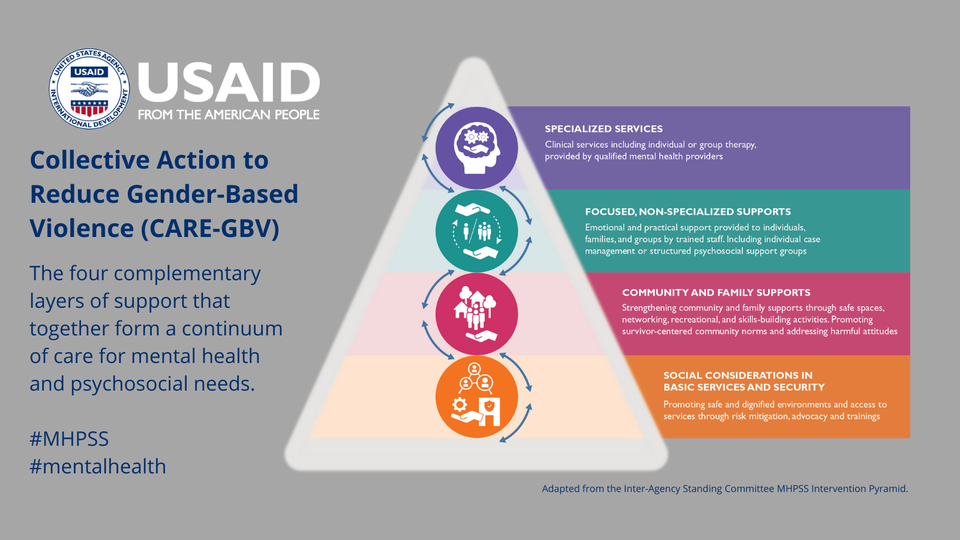Mental Health and Psychosocial Support Key for GBV Prevention and Response
27.04.2022
ASIV

Mental health encompasses dynamic states of emotional, psychological, and social well-being. These states affect how individuals think, feel, act, respond to stress, and relate to others. While survivors’ experiences vary, the impacts of gender-based violence (GBV) on mental health and psychosocial well-being can have farreaching consequences for individuals, families, and communities. Psychological effects of GBV can include feelings of fear, sadness, guilt, and anger, as well as anxiety, depression, self-harm, suicidal ideation, and addiction. Alongside social consequences, such as stigma, isolation, and discrimination, these effects can contribute to difficulties in maintaining or establishing relationships and disruptions to work, caregiving, and education.
The fourth in a series of how-to notes produced under the CARE GBV Task Order that Development Professionals Inc. is implementing with our partners, Making Cents International, strongly advocates for applying an integrated approach that places a strong emphasis on ensuring mental healts and psychosocial needs and concerns of all involved in GBV programes and interventions - victims, survivors, those at increased risk of GBV, family and community members, and caregivers and staff, are met in all steps of USAID programming.
In order to ensure positive outcomes for GBV victims, survivors, and those at risk of GBV, mental health and phychosocial support have to be treated as an an essential component of a multisectoral response to GBV. They need to be integrated into health, justice, education, social services, and other sectoral initiatives that address GBV. This is also critical to promoting healing, empowerment, and meaningful participation in education, economic, and civic activities for victims and survivors. The forth in a series of how-to notes produced under the CARE GBV Task Order that Development Professionals Inc. is implementing with our partners, Making Cents International,
In addition to outlining four complementary layers of support that together form a continuum of care for mental health and psychosocial needs with regard to GBV, the how-to note applies a survivor-centered lense to programming these essential tools into effective and empowering interventions. Outlined avenues of support are firmly rooted in the do-no-harm and trauma-informed approaches, focusing on making sure that programming objectives, actions, and interventions do not—intentionally or unintentionally—compromise the physical and emotional safety of program participants, community members, or staff, and that safe, healing, and empowering environments for all staff and program participants, including survivors of GBV, are promoted.
The how-to note also presents a case study from Rwanda, and outlines the do's and dont's of effective mental-health and psychosocial support programming at each step of the USAID programming cycle.